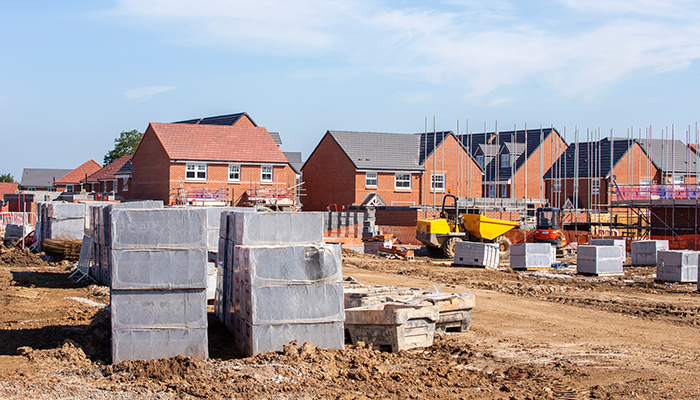
Image © iStock
If the government is as serious as it says it is about growing the economy and better supporting local communities, a central focus – alongside reducing inflation, cutting NHS waiting lists and securing the future of public services – must surely be resolving the issues preventing much-needed new homes being developed up and down the country.
Some of the housing associations I work with tell me it can now take as long as two years or more for their projects to go through planning, while more than one million people are left languishing on social housing waiting lists as a result.
However, the critical vote into UK planning reforms was delayed in November following a rebellion of 60 backbench MPs who also called on the government to back down from its 300,000 homes target.
Meanwhile, as with the revolving door of prime ministers in recent times, there have been eight separate housing ministers and seven housing secretaries in the last five years alone, with the past three housing ministers working an average of just 84 days before being replaced.
This merry-go-round of ministers is one of the reasons why I believe we have not seen any meaningful and consistent improvements to the sector, be it around planning, legislation or raising the importance of affordable housing.
We need a government that really understands these issues
Following his reappointment as housing and levelling up secretary at the end of last year, Michael Gove has said that previously mandatory housing targets will now be ‘advisory’ only, with local councils having the option to build fewer homes.
He has argued that new developments must instead be supported by their local communities who should be reassured they will ‘be beautiful, accompanied by the right infrastructure, approved democratically, enhance the environment and create proper neighbourhoods.’
I agree that in the desperation to build many more new homes, we can’t simply return to something similar to the post-war planning standards when hundreds or thousands of houses would be built with only a small recreation space and nothing else.
They also need the right infrastructure and green spaces around them to ensure they can support, and be supported by, their local communities.
But in parts of the country where we need more homes the most, local planning authorities are hamstrung in their efforts to deliver new developments in the first place due to strong local opposition, proving the value of some top-down targets.
And I believe we must also look at ways of better resourcing and empowering local planning departments. A major cause of the current planning delays are the extensive budget cuts to local planning departments with spending on planning falling by 59% in between 2009 and 2019, according to the Institute for Fiscal Studies.
This has left us with a backlog of applications and an unfortunate dearth of experienced planning officers who can push through applications and provide invaluable advice to less qualified local councillors who might be more likely swayed by well-organised local protests.
Ideally, we need more educated planning officers and they should be given greater autonomy across the whole process, driven by the understanding that local areas need to thrive in order to survive, with a wide range of tenures and a cross-section of people, income streams, political views and age groups, who will spend money on different things and in different ways.
Amid the ongoing political uncertainty surrounding future development, we need a government that really understands these issues and takes this increasing housing need seriously.
Without this, not only are we further weakening economic growth but we also are ignoring the needs of communities up and down the UK where there are just not enough homes for the local populations.












